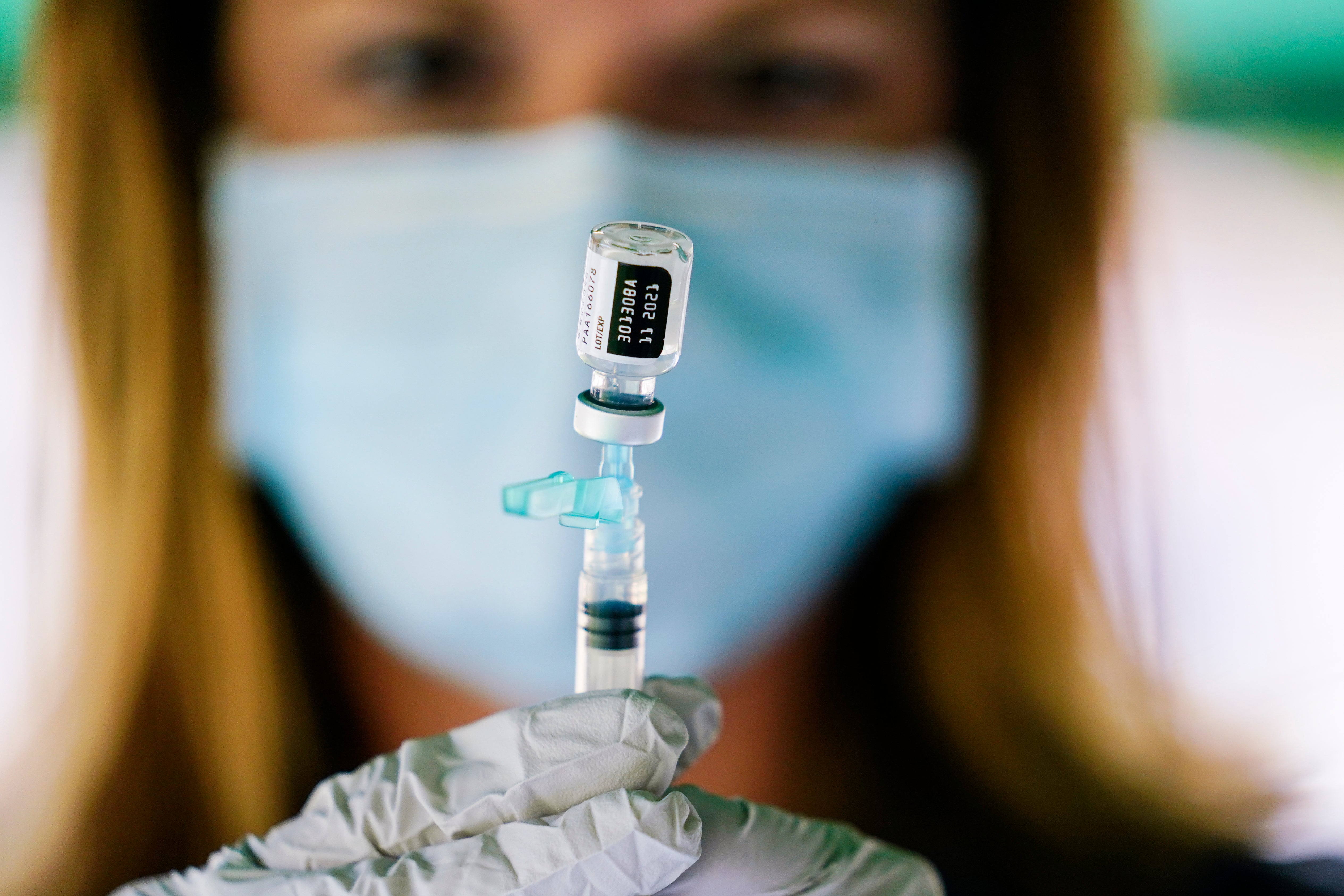Vaccines protect patients with cancer against Covid, new study suggests
Cancer patients have similar jab side-effects to general population, scientists say

Your support helps us to tell the story
From reproductive rights to climate change to Big Tech, The Independent is on the ground when the story is developing. Whether it's investigating the financials of Elon Musk's pro-Trump PAC or producing our latest documentary, 'The A Word', which shines a light on the American women fighting for reproductive rights, we know how important it is to parse out the facts from the messaging.
At such a critical moment in US history, we need reporters on the ground. Your donation allows us to keep sending journalists to speak to both sides of the story.
The Independent is trusted by Americans across the entire political spectrum. And unlike many other quality news outlets, we choose not to lock Americans out of our reporting and analysis with paywalls. We believe quality journalism should be available to everyone, paid for by those who can afford it.
Your support makes all the difference.Vaccinations against Covid are as effective and safe for people with cancer as for those without cancer, new studies suggest.
Cancer patients have an “appropriate, protective immune response” to the jabs without “any more side-effects than the general population,” according to the European Society for Medical Oncology (ESMO).
The researchers said that the studies show there is a need to promote vaccination in patients with cancer.
The studies were carried out because people with cancer were excluded from vaccine clinical trials, due to their weaker immune systems as a result of undergoing anti-cancer treatments.
Scientists said that a “multitude of studies” with similar conclusions will be presented today (21 September) at the annual ESMO Congress.
An analysis of 3,813 participants with a history of past or active cancer in a randomised controlled trial of the BioNTech/Pfizer vaccine shows that the most common side-effects of vaccination were as mild – and occurred at a similar frequency – as within the overall trial population of more than 44,000 people.
Another study found that a booster jab could improve immune response to the coronavirus in cancer patients who do not have sufficient protection after a second vaccine.
A total of 791 patients from a number of hospitals in the Netherlands were enrolled in the study, who were then assigned to four groups: those without cancer, those with cancer treated with immunotherapy, those with cancer treated with chemotherapy, and cancer patients treated with a chemo-immunotherapy combination.
The researchers measured their responses to Moderna’s two-dose mRNA-1273 vaccine.
Twenty-eight days after administration of the second dose of the vaccine, adequate levels of antibodies to the virus in the blood were found in 84 per cent of patients with cancer receiving chemotherapy, 89 per cent of patients receiving chemo-immunotherapy in combination, and 93 per cent of patients on immunotherapy alone.
Dr Antonio Passaro, ESMO press officer and lung cancer expert at the European Institute of Oncology in Milan, who was not involved in the study, said that these results compare favourably with the antibody responses seen in almost all (99.6 per cent) of the group of individuals without cancer.
He said: “The high rates of efficacy of the vaccine observed across the trial population, regardless of the type of anticancer treatment, constitute a strong and reassuring message for patients and their doctors.”
Dr Passaro said it is important that patients with cancer complete the two-dose programme so that they can develop enough antibodies against the coronavirus.
It comes after trial data showed that only about a third of those undergoing chemotherapy on its own or in combination with immunotherapy had achieved a sufficient response after their first jab – which is half as many as in the group of individuals without cancer.
This observation was replicated in an Israeli study on the effects of the Pfizer/BioNTech vaccine among 232 patients with cancer as well as 261 people in a control group.
While less than a third of individuals with cancer (29 per cent) developed antibodies after receiving the first dose, compared to 84 per cent in the control group, this proportion increased to 86 per cent following administration of a second dose.
Only two cases of Covid were reported during the study period, both of which occurred in patients who had not yet received their second jab – which scientists say further demonstrates the efficacy of the vaccine.
Dr Luis Castelo-Branco is an ocologist in the ESMO Scientific and Medical Division, with no ties to the studies, said that the “oncology community has good reason to rejoice” over the results.
He said: “These findings lend additional support to the principle of offering the complete cycle, possibly including a third booster dose, to patients with cancer to improve their protection, because it suggests their immune system will respond to the extra stimulation.”
Dr Castelo-Branco stressed that it is important for the effectiveness of the vaccines to be “continually reassessed” as new variants of Covid emerge.
He said that a UK study found 69 per cent of people with blood cancer – such as leukemia or lymphoma – developed no neutralising antibodies against the currently dominant Delta variant following vaccination.
UK charity Blood Cancer urges those with the disease to get vaccinated, as it says that there is a “jump in immunity from first dose to second dose” and that a third dose “could increase this protection even more”.




Join our commenting forum
Join thought-provoking conversations, follow other Independent readers and see their replies
Comments